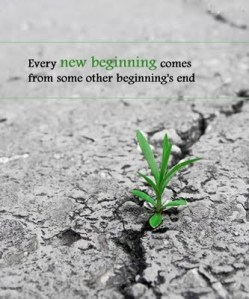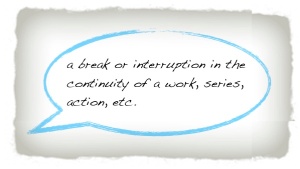What would it feel like to lay your head on your pillow at night and say, “You know what I did today? I teamed up with God to change the world”?
I read this statement in Bill Hybels book Volunteer Revolution and thought “that’s a nice slogan to champion volunteerism.” Then I realized that Hybels is poking at a deeper issue…an issue that plagues numbers of people. I would venture to say an issue that plagues all people at some point in their lives, whether Christians or not. It is the issue of significance and purpose.
What meaning does my life have?
I want to do something that has lasting value, that is bigger and grander than me.
Timothy Keller writes on this issue and points to 1 Corinthians 7 where the Apostle Paul writes about work in terms of calling. Keller notes that “our daily work can be a calling only if it is reconceived as God’s assignment to serve others. And that is exactly how the Bible teaches us to view work.” I think this is true of vocational work and volunteering. So what does this mean practically for our lives? Good question! How about what Keller says concerning vocational work, but again, I think it applies to all areas of your life…
The question regarding our choice of work is no longer, “What will make me the most money and give me the most status?” Instead, the question must now be, “How, with my existing abilities and opportunities, can I be of greatest service to other people, knowing what I do of God’s will and human need?”
Wow! Use that as a guide for vocation, volunteering, free time, life direction…whatever. This will reorient things a bit! But, at the end of the day, we would know what it feels like to team up with God as He changes the world! I’m down for that…are you?




 the problem with things you don’t know is you don’t know you don’t know them. bummer, huh? i find it extremely helpful to position myself around people who are at various stages further down the road than I am. for instance, i find that person who is miles down the road from me. this person usually has the stability and ability to look back and synthesize life lessons/principles. this can be for all areas of life…ministry, family, marriage, personal, etc. then there is that person who is in the trenches with me. i find great comfort and encouragement to know i am not in this (whatever “this” may be) by myself. an oft over-looked resource, however, is the person who is only 2-3 steps ahead of you. this person is less able to look back and synthesize life principles/lessons, but he or she is close enough to the action to say “watch out!!!!!! you really don’t want to do that.”there is an immediacy to their input, but the cautions & encouragement can be for things that will greatly alter the long-term direction. another pastor is writing a blog series entitled “Church Planting Things I Wish They’d Told Me.” it is a great series and I greatly appreciate his insights. even if you aren’t a church planter, it’s worth checking out
the problem with things you don’t know is you don’t know you don’t know them. bummer, huh? i find it extremely helpful to position myself around people who are at various stages further down the road than I am. for instance, i find that person who is miles down the road from me. this person usually has the stability and ability to look back and synthesize life lessons/principles. this can be for all areas of life…ministry, family, marriage, personal, etc. then there is that person who is in the trenches with me. i find great comfort and encouragement to know i am not in this (whatever “this” may be) by myself. an oft over-looked resource, however, is the person who is only 2-3 steps ahead of you. this person is less able to look back and synthesize life principles/lessons, but he or she is close enough to the action to say “watch out!!!!!! you really don’t want to do that.”there is an immediacy to their input, but the cautions & encouragement can be for things that will greatly alter the long-term direction. another pastor is writing a blog series entitled “Church Planting Things I Wish They’d Told Me.” it is a great series and I greatly appreciate his insights. even if you aren’t a church planter, it’s worth checking out 